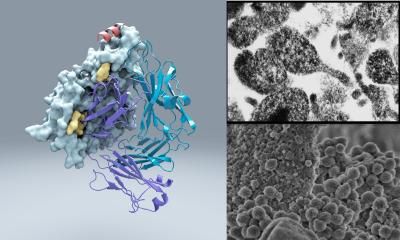Merck Decides Not to Pursue Evofosfamide Further in Soft Tissue Sarcoma and Pancreatic Cancer
Merck announced that it is not planning to file for approval of evofosfamide in advanced soft tissue sarcoma and advanced pancreatic adenocarcinoma. The decision was made in light of the results from two Phase III studies of evofosfamide in combination with chemotherapy in these two types of cancer, as reported by Threshold Pharmaceuticals Inc.. Merck will now be redeploying its resources into high-profile future products, such as avelumab and all other priority programs in oncology, immuno-oncology and immunology.
“Despite seeing signs of activity in pancreatic cancer, pre-specified primary endpoints were not met in both studies and therefore the data do not support filing in these indications,” said Luciano Rossetti, Head of Global Research and Development of Merck’s biopharma business. “We decided today not to pursue investigation of evofosfamide in soft tissue sarcoma and pancreatic cancer, and we will be making a quick decision on the future of the ongoing evofosfamide clinical program.”
Details of the two Phase III studies will be shared with the scientific community once the data have been further analyzed.
“Today’s results are disappointing for patients. Yet we are confident in our pipeline and will reallocate evofosfamide resources to accelerate other key programs in oncology and immuno-oncology,” said Rossetti.
Merck’s pharmaceutical pipeline is focusing on oncology, immuno-oncology and immunology. In immuno-oncology, Merck, together with Pfizer, is researching avelumab, an investigational anti-PD-L1 antibody, in more than 15 tumor types.
*Avelumab is the proposed International Nonproprietary Name for the anti-PD-L1 monoclonal antibody (MSB0010718C). Avelumab is under clinical investigation and has not been proven to be safe and effective. There is no guarantee any product will be approved in the sought-after indication by any health authority worldwide.
Most read news
Other news from the department research and development

Get the life science industry in your inbox
By submitting this form you agree that LUMITOS AG will send you the newsletter(s) selected above by email. Your data will not be passed on to third parties. Your data will be stored and processed in accordance with our data protection regulations. LUMITOS may contact you by email for the purpose of advertising or market and opinion surveys. You can revoke your consent at any time without giving reasons to LUMITOS AG, Ernst-Augustin-Str. 2, 12489 Berlin, Germany or by e-mail at revoke@lumitos.com with effect for the future. In addition, each email contains a link to unsubscribe from the corresponding newsletter.
Most read news
More news from our other portals
Last viewed contents
Researchers optimizing progesterone for brain injury treatment - New approaches include adding vitamin D and using water-soluble analogues

The ultimate decoy - Scientists find protein that helps bacteria misdirect immune system
Researchers rapidly turn bacteria into biotech factories
PBL InterferonSource founder, Sidney Pestka, MD, to receive 'Distinguished Service Award' from 'ISICR'
Fabry's_disease






















































